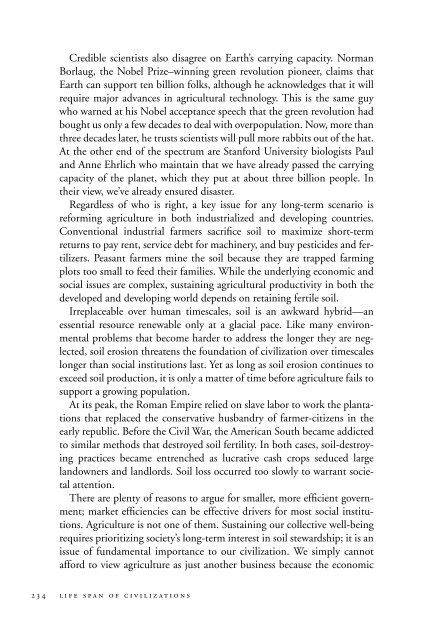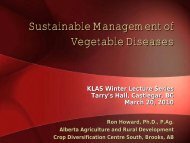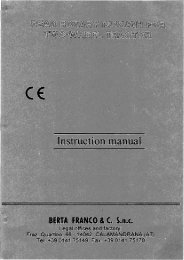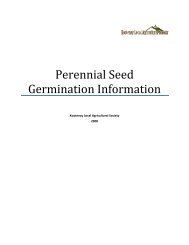Dirt: The Erosion of Civilizations - Kootenay Local Agricultural Society
Dirt: The Erosion of Civilizations - Kootenay Local Agricultural Society
Dirt: The Erosion of Civilizations - Kootenay Local Agricultural Society
Create successful ePaper yourself
Turn your PDF publications into a flip-book with our unique Google optimized e-Paper software.
234<br />
Credible scientists also disagree on Earth’s carrying capacity. Norman<br />
Borlaug, the Nobel Prize–winning green revolution pioneer, claims that<br />
Earth can support ten billion folks, although he acknowledges that it will<br />
require major advances in agricultural technology. This is the same guy<br />
who warned at his Nobel acceptance speech that the green revolution had<br />
bought us only a few decades to deal with overpopulation. Now, more than<br />
three decades later, he trusts scientists will pull more rabbits out <strong>of</strong> the hat.<br />
At the other end <strong>of</strong> the spectrum are Stanford University biologists Paul<br />
and Anne Ehrlich who maintain that we have already passed the carrying<br />
capacity <strong>of</strong> the planet, which they put at about three billion people. In<br />
their view, we’ve already ensured disaster.<br />
Regardless <strong>of</strong> who is right, a key issue for any long-term scenario is<br />
reforming agriculture in both industrialized and developing countries.<br />
Conventional industrial farmers sacrifice soil to maximize short-term<br />
returns to pay rent, service debt for machinery, and buy pesticides and fertilizers.<br />
Peasant farmers mine the soil because they are trapped farming<br />
plots too small to feed their families. While the underlying economic and<br />
social issues are complex, sustaining agricultural productivity in both the<br />
developed and developing world depends on retaining fertile soil.<br />
Irreplaceable over human timescales, soil is an awkward hybrid—an<br />
essential resource renewable only at a glacial pace. Like many environmental<br />
problems that become harder to address the longer they are neglected,<br />
soil erosion threatens the foundation <strong>of</strong> civilization over timescales<br />
longer than social institutions last. Yet as long as soil erosion continues to<br />
exceed soil production, it is only a matter <strong>of</strong> time before agriculture fails to<br />
support a growing population.<br />
At its peak, the Roman Empire relied on slave labor to work the plantations<br />
that replaced the conservative husbandry <strong>of</strong> farmer-citizens in the<br />
early republic. Before the Civil War, the American South became addicted<br />
to similar methods that destroyed soil fertility. In both cases, soil-destroying<br />
practices became entrenched as lucrative cash crops seduced large<br />
landowners and landlords. Soil loss occurred too slowly to warrant societal<br />
attention.<br />
<strong>The</strong>re are plenty <strong>of</strong> reasons to argue for smaller, more efficient government;<br />
market efficiencies can be effective drivers for most social institutions.<br />
Agriculture is not one <strong>of</strong> them. Sustaining our collective well-being<br />
requires prioritizing society’s long-term interest in soil stewardship; it is an<br />
issue <strong>of</strong> fundamental importance to our civilization. We simply cannot<br />
afford to view agriculture as just another business because the economic<br />
life span <strong>of</strong> civilizations






